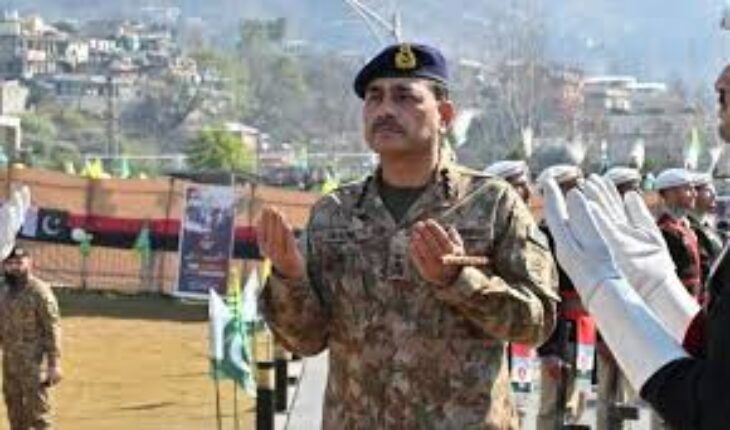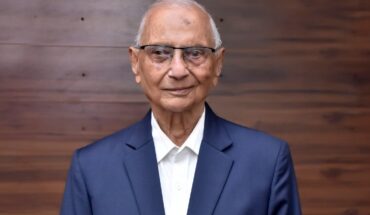Reinvigorated with the success of his brethren in uniform in deposing Sheikh Hasina, an elected civilian prime minister for 15 years, in Bangladesh, with the support Jamaat-E-Islami, Pakis invoke two-nation theory. The ideology was dead in 1971, when Pakistan’s majority Muslim province in the east decided to become a secular democratic Bangladesh.
In spite of the reports of some Muslim students guarding Hindu temples, the interim government led by Mohammad Yunus, an economist and Nobel laureate, has a strong presence of radical Islamists in the new setup. Younus has inducted Abul Fayez Mohammad Khalid Hossain, president of Hafazat Islam, a known anti-India outfit in Bangladesh. He is also for the implementation of the Sharia laws in the country’s judicial system.
The continuous attacks on the supporters of the erstwhile secular democratic regime of Sheikh Hasina cause concerns in India, but the democratic regimes in the US-led West are maintaining silence officially, but their media is supporting the military coup in Bangladesh.
The frustrated Islamists that despite the physical removal of Sheikh Hasina from power, are scared of the supporters of democracy and the identity of Bangladesh. On August 15, they attacked those who were paying homage to the founder of Bangladesh, Sheikh Mujibur Rahman. Forty nine years ago, on this day, he along with his family was martyred. Mujibur could escape gallows in Pakistan. A section of the army having close ties with the Pakistani intelligence agencies, ISI, and Mullahs had committed this heinous crime.
History might remember Younus, not as an economist, but as a Trojan horse of the new military rulers responsible for ending democracy with the Pakistani -backed Islamists.
Kashmir -an Unfinished Agenda -Mirth and happiness was irresistible for Pakistan’s army chief Syed Asim Munir, stated to be well-versed in the Holy Koran, when he claimed that Kashmir as a majority Muslim area should have been given to Pakistan as an unfinished agenda of India’s partition in 1947. He was addressing a gathering of Islamic scholars at Islamabad.
The new camaraderie is natural between Asim Munir and the Bangladesh army chief General Waker-uz-Zaman. Both control the civilian governments of their respective countries. They draw their political strength from radical Islamists and are being blessed by China and the US-led West.
Munir’s Initiative -It was a calculative move of the Pakistani army chief to raise the two -nation theory to camouflage the bloody past of his predecessors.In 1971, the blood-thirsty Paki soldiers had committed genocide in Bangladesh, then the eastern province of Pakistan. They had massacred more than 20 million Bengali Muslims and violated at least one million women in the age-group of 16-60.
In an upbeat mood, Asim Munir asserted before a select audience of Ulemas and Mashaikhs, experts in Islamic laws and scholars of Islam respectively, that the recent events in Bangladesh have reaffirmed the ideology of two-nation is alive. Without referring to the bloodless coup in Dacca that toppled the secular government of Sheikh Hasina, he reiterated his commitment to the
Sharia law. If anyone dared to oppose the Islamic law would be branded a non-Pakistani, told the gathering of radical Muslims held recently in Islamabad.
The Mashaikhs and Ulemas were also appreciative of the timely coup by the Bangladesh army. For them, it was the return of the Muslims to return to the faith in Bangladesh from the influence of secularism and democracy. Forty nine years ago, they were a part of Pakistan. Also, they were on the forefront of the movement for a Muslim country i.e. Pakistan.
Ulema’s Hope -The conference didn’t pass any formal resolution welcoming Hasina’s removal, but their discussions centered around emphasizing Islam’s role in the governance.There was a sense of satisfaction that like Pakistan, Bangladesh too would become an aggressive Islamic regime. The meeting was held within a week of the bloodless coup, jointly conspired by the chiefs of army, navy and airforce in Dacca. The chiefs prevailed upon Hasina to resign and escape in a helicopter before the menacing crowd of students led by Islamists decimated her like Sheikh Mujibur Rahman. Mujibur Rahman, Hasina’s father, was killed along with his sons, brothers and even their spouses and children by a group of young army officers. These officers were never punished.
It was quite satisfying for the Ulemas and Mashaikh that despite being under the anti-Islamic forces for half-a-century, the Islamists have reasserted in Bangladesh. They also hoped that with the defense forces occupying the pivotal role, Bangladesh is expected to adopt the Sharia laws in near future.
Since 1971, a secular and democratic Bangladesh had become a challenge to the basic concept of the partition of India i.e. the two-nation theory. It was cleverly implemented by the outgoing colonial power. The British Parliament had enacted the Indian Independence Act in 1947, thus the twins, Pakistan and India, were delivered by the white mother. Pakistan had two wings in East and the West, separated by 1500 kilometers of Indian territories.
Partition Negated – During British rule, seeds of India’s partition were sown with the setting up a provincial unit of the Muslim League in Bengal, especially enrolling the rich landlords. In a bid to win the support of the poor Muslims, a series of communal riots were engineered. The Razakars, though noticed when they resisted the merger of Nizam’s state, Hyderabad, with India, were being nurtured by Muslim landlords on the advice of the British. These Razakars were sent to Bengal to spread communal violence.
General Munir, who is known as a zealot Muslim, who has learnt Holy Koran by heart and could recite the holy text without reading it, was so happy that it is heartening that the two- nation theory propagated by Muhammad Ali Jinnah is back on the agenda of the sub-continent.
Gopal Misra has been associated with national and international media. His books on journalism and geo-politics have been well-appreciated. Views are personal.






